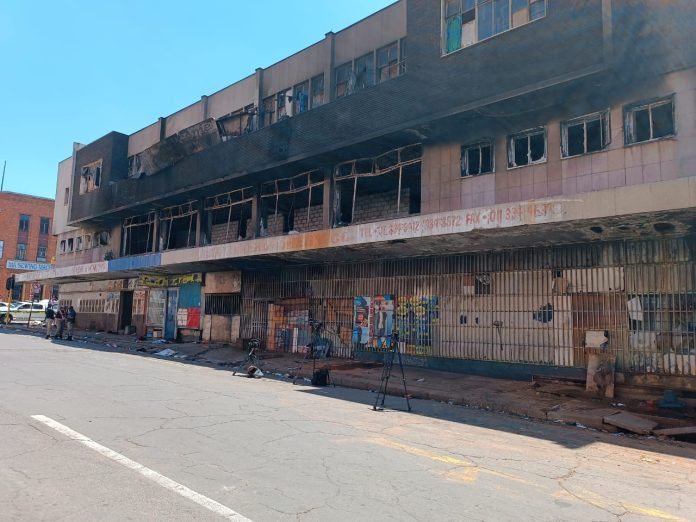If you hear in a taxi or any public transport a commuter chatting with a friend or an acquaintance that they would rather be seen dead than setting their feet in Johannesburg’s central business district, how should we react to that kind of discussion?
Should that conversation not cause us distress or a sinking feeling, for to speak along those terms is to invoke a political metaphor reflecting the -precarious state of our badly managed cities.
I wrote this piece on Tuesday, a day before the elections, wondering what the new and seventh administration would turn out to be.
Many would wish that such talks never become a common feature – and that the concern should be to strive to redeem Johannesburg and other dilapidated cities.
The common conversation we hear every day is that Johannesburg has become a pigsty – and that it is crime-ridden, and unsafe. The implications are dire for the economy. What tourists would want to spend their day and dollar in an unsafe and dangerous city?
To make the point. It is reported that during the 1990s, crime rates in New York City dropped dramatically. Many attribute New York’s crime reduction to specific get-tough policies carried out by former mayor Rudolph Giulian’s administration.
No one will succeed in drastically reducing crime by being nice and timid to criminals. Tough measures are called for.
Stephen Bantu Biko has left us a legacy to love ourselves as black people, and not to self-flagellate by acting in a manner that is contrary to principles of justice and ubuntu – and refrain from corrupting a political system for personal aggrandisement.
The City of Joburg has become a pigsty because of the people elected to run the administration. The decomposition did not happen without a cause – bad governance caused it.
Freedom and democracy mean more than winning political power. It also means to have the ability to run cities, towns and villages, as if you are running your own household.
Businesses do not thrive in a crime-ridden environment. Inefficient leaders ran down beautiful inner city suburbs such as Hillbrow, Berea and Yeoville, among others.
Urban decay, or any other form of rot, is, in part, a reflection of poor governance or poor urban planning. And Johannesburg, and its state of dilapidation, speaks volumes about the uncaring attitudes of those elected to run municipalities.
This goes for other cities such as eThekwini, Tshwane, Polokwane, East London, Gqeberha, among others.
But why the deterioration?
As early as 2016/2017 financial year, governance at local government was suspect, this highlighted by the auditor–general’s report by the late Kim Makwetu. It painted a bleak financial management track record.
Makwetu’s expert advice was not heeded, and today, the malady festers, with Cooperative Governance and Traditional Affairs Minister Thembi Nkadimeng concerned about the increasing number of dysfunctional municipalities.
A week ago, in his Siyanqoba Rally speech at the FNB Stadium, President Cyril Ramaphosa bemoaned the deteriorating state of municipalities, promising that the government will act to arrest the rot.
The national and provincial spheres of government are mandated to intervene when they detect governance shortcomings.
Over the years the national and provincial spheres of government have been mollycoddling errant municipalities.
The Constitution demands that where municipalities are found wanting, national and provincial governments must intervene.
As set out in section 152(1) of the Constitution, municipalities are entrusted with the function of providing democratic and accountable local government – to ensure the provision of services is sustainable and to also
When municipalities fail to meet this obligation, the national and provincial spheres of government must step in.
Over the years the leadership in municipalities have tended to serve their own interests above those of residents.
This must change. When municipality officials begin to serve not their political principals or themselves, but the communities, restoration will come about and cities, towns, and villages will no longer become pigsties but habitable places of joyfulness.
This is what the seventh administration ought to be – a servant of the people.
- Mdhlela is an Anglican priest, ex-trade unionist, and former editor of the South African Human Rights Commission journals



